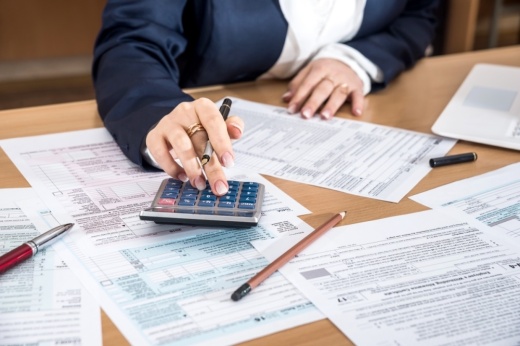What you need to know
State Proposition 9 would exempt up to $125,000 of a business’s personal property, such as equipment, furniture and vehicles, from taxation. Texas business owners currently receive a tax exemption on property worth $2,500 or less.
“At $2,500, virtually everyone's paying this tax,” NFIB Texas Director Jeff Burdett said in an Oct. 24 interview. “If you have a desk, a computer and a chair, you're probably over $2,500 [in inventory]. ... It makes no difference for almost any business.”
Burdett said the business personal property tax exemption was originally set at $500 and increased to $2,500 in 1985. He said the change on Texans’ ballots would be “the first time we've had a significant increase in this exemption amount in the history of this tax.”
While all Texas businesses pay the personal property tax, Burdett said the exemption increase would have the largest impact on small businesses.
“For the bigger companies, a couple of thousand dollars [in savings] isn’t going to be that big a deal for them,” Burdett said. “But the average-size business here at NFIB has 10 employees, and half of our [members] have five or less employees—that is actually money that they can use to invest back in their business and pay their employees more.”
The average small-business owner would save about $2,500-$3,500 if the $125,000 exemption is approved by voters, NFIB estimated.
State lawmakers approved the exemption increase earlier this year, but because property tax exemptions are enshrined in the Texas Constitution, voters have the final say.
Early voting in the Nov. 4 election began Oct. 20 and runs through Oct. 31. For more information about the propositions and candidates on your local ballot, visit www.communityimpact.com/voter-guide.
More details
During a legislative hearing in March, Diego Galicia, chef and owner of the San Antonio restaurant Mixtli, said taxes and rising costs contributed to the closure of over 40 independent San Antonio restaurants in 2024.
“Every year—a lot of people don’t know this—we pay taxes on equipment that we use daily to operate the restaurant, that we paid sales taxes for when we purchased them,” Galicia said March 3. “I believe this places an undue burden on the independent restaurants [and] retailers, like barber shops, beauty salons, art shops and many other small businesses.”
The tax also creates an administrative hurdle for small-business owners, Burdett told Community Impact.
“The administrative hassle of having to deal with all of this year after year, pay taxes on the same items year after year and go through that whole process is just time away from your business,” he said Oct. 24. “You could be [using that time] to run your business rather than dealing with the administrative burdens and trying to figure out all of the inventory that you have.”





